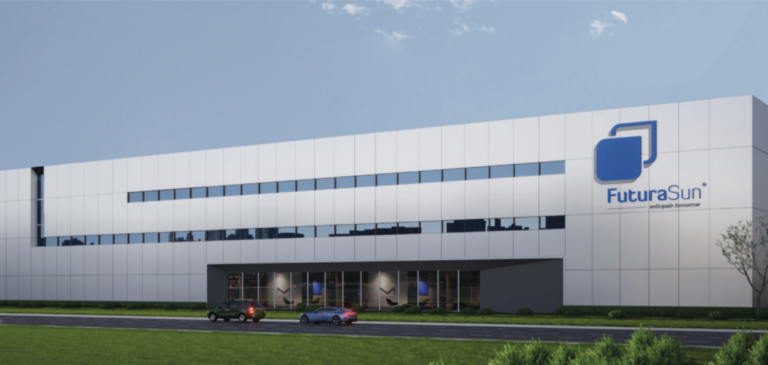The project has therefore reached the phase of preparing the subsidy agreement. The next step will be the preparation and signing of the grant agreement with Cinea, the granting authority, to formalize the financing of €21 million.
Italian solar company FuturaSun’s FENICE project, aimed at building a high-efficiency photovoltaic module factory in Italy, has passed the selection phase of the European Executive Agency for Climate, Infrastructure and the Environment (CINEA) as part of the non-repayable financing of the European Union. Union’s Innovation Fund.
“The new factory will produce more than 7.6 GW of high-efficiency photovoltaic modules in its first ten years of operation,” said the company, based in Cittadella in the northern Italian province of Padua. “This is an important contribution to the goals of the European energy transition, with the European Union aiming to obtain 49% of energy in the construction sector from renewable sources by 2030.”
FutureSun described the project as “a pioneering initiative” and said it would introduce the production of PV modules based on advanced technologies such as n-type and xBC (Back Contact) in Italy and Europe.
The FENICE project is now in the grant agreement preparation phase and marks a crucial milestone towards the establishment of a state-of-the-art factory specializing in next-generation photovoltaic modules, the company said. The next step will be the signing of the agreement with CINEA, the concession authority, to formalize the financing.
“The new plant, which is 100% powered by renewable sources and has a nominal production capacity of 1.4 GW per year, will directly employ more than 250 people,” the company added.
The project involves a total investment of approximately €53 million ($57.4 million), of which €21 million will be covered by direct funding from the EU through the Innovation Fund programme.
Alessandro Barin, CEO of FuturaSun, recently explained Unpleasant pv magazine Italy the methods and timing for the construction of the factory in Italy. “We would like to start the project in concrete terms in 2025,” says Barin.
This content is copyrighted and may not be reused. If you would like to collaborate with us and reuse some of our content, please contact: editors@pv-magazine.com.


